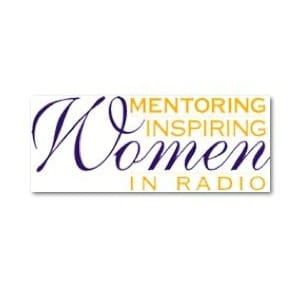
How do you energize our industry so it’s a first choice among the job market’s talented crop of millennials and Generation Z? It is important for these young professionals to feel like they’re making a difference, and to believe that working for your company will result in both a concrete financial benefit and a cosmic contribution. While you should give all employees a reason to trust that their “day at the office” has value, providing this particular group with the impact your locally connected, community-oriented radio station makes should be part of any recruitment effort.
To get a deeper sense of what works, we asked the 2018 MIW Group mentees how they got into the business, why they find their career choice so compelling, and what we should do to entice the next generation into radio. A few things may be surprising, many will be encouraging, and some should compel you to think differently.
The following is a Q&A with Candy Cintron, assistant director of programming at Entercom’s WLZL (El Zol 107.9)/Washington, DC; Amanda Guest, general manager of BFF.fm (Best Frequencies, Inc).; Jillene Khan, afternoon host at Midwest Family Broadcasting’s WMGN/ Madison, Wisconsin; Leslie Scott, program director of Entercom’s KNDD (The End)/Seattle; and Kimberly Sonneborn, vice president of digital operations for Beasley Media Group.
What prompted you to get into radio, and how did you take your first step?
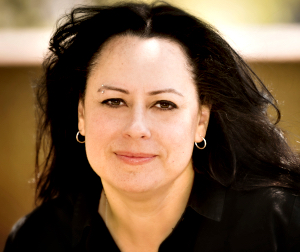
Candy Cintron: For Christmas, when I was 7 years old, I asked Santa for a shoebox recorder and soon became an expert on editing cassette recordings. I often took radios apart just to learn how they worked. When I was graduating high school, my guidance counselor asked what I would do every day of my life, even without pay. My answer was immediate! I would listen to music all day long.
In college, when it was time for an internship, I left no stone unturned and personally visited over 10 radio stations until one gave me the chance. Once there, I waited for the right opportunity, and there it was! The production director had a minor accident and was unable to come in for a few hours. A last-minute “urgent” commercial (is there any other kind?) was needed, and I jumped at the chance to show my recording and editing skills. That same day I was given a key and a time card — I was the new part-time production assistant!
Amanda Guest: I grew up playing DJ on mixtapes, dubbing over my local pop station.

Then one night I was scanning the dial, found my local college radio station, and was blown away by the variety of music. It was unlike anything I’d heard before. That fall I joined the station and became a DJ, hosting one show, then several. I quickly grew interested in the operational aspects of radio, and the rest is history! I founded community radio station BFF.fm in San Francisco after exploring the community radio landscape and realizing that there was room for a station dedicated to the local music scene. My goal was to create a place where a whole new generation of post-collegiate music nerds could unite and champion the cultures that make the Bay Area unique.

Kimberly Sonneborn: After graduating from college, I applied at one of the local radio stations, not quite sure what to expect. I had majored in graphic design and public relations, and truthfully, I just wanted to get my foot in the door, so I applied for an administrative assistant position to Beasley’s chief technology officer.
Immediately, I fell in love with the fast pace and talented people who taught me how to keep on moving, no matter the circumstance. Every opportunity to learn a new skill set, like designing and building websites, inspired me. I had never designed a website in my life, but jumped at the chance to learn. The CTO gave me an opportunity, and I ran with it. Now, several years later, as VP of digital operations here, I would say it all worked out.
Why should teens and young adults consider radio as a career?
Candy Cintron: Radio is forever transforming due to all the technology innovation. Consider the jobs related to radio that have nothing to do with the main studio: websites, apps, ads, marketing, data research, engineering, and so on. There is also the world of podcasts and video blogs. There is so much more to radio than just a frequency.

Leslie Scott: Younger millennials and Generation Z are incredibly self-starting, resourceful, and creative — three qualities that make for successful and fun radio careers! These young adults understand how to get attention in our short-attention-span world, which is exactly what radio needs to harness.
What should the industry do to bring the younger generation into radio?
Candy Cintron: A “day in radio” is a great concept for interacting with the youngest listeners. We can open our doors to schools for field trips, and also visit the schools and explain what goes on when the mics are off. There is a whole world in radio that most people have no idea about!
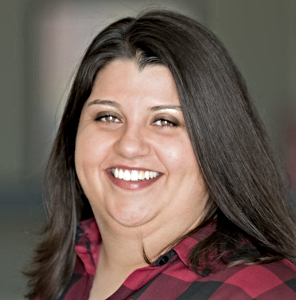
Jillene Khan: The single greatest thing I think someone can do to get into radio is to find an internship. Not the kind where you become the breakfast/coffee runner, the kind where everyone from programming to sales will allow you to work with them, and you get a chance to say yes to everything. That’s how I got my start, and that’s where I realized what my talents were and what direction I wanted to go in my radio career.
Amanda Guest: We must tell young adults that “radio needs your voice!” I think we should put out the welcome mat and mean it. One of the best things we can give the younger generation is a sense of ownership of the work they do. That can be scary, since it means relinquishing a little bit of control, but it’s worth investing your trust in young people for the energy, ideas, and perspectives they can bring to a station.
Leslie Scott: As industry professionals, we need to nurture these young people and show them radio offers a creative outlet where they can grow in many areas for any kind of attention span, like communications, sales, digital, and audio creation. It’s important for us to take time with younger members of the staff. Don’t be that person they are too afraid to approach. We have to make the initial contact by asking why they
love radio and what their passions are, and then taking the time to follow through and mentoring those we believe in. We must help train and mentor the future of our industry.
Do you have any best practices to share?
Amanda Guest: I’ve had success building relationships with local colleges and universities that have a college radio station. Station advisers will recommend their students who get bitten by the radio bug, and they make great community radio DJs.
Kimberly Sonneborn: When considering internships, make sure your programs are compelling and promoted at local schools with a defined syllabus of what they will get to experience and accomplish. I would encourage managers to take chances on students who have a work ethic, and don’t hold back because they might not fit the typical mold you are accustomed to hiring. Millennials are just like a majority of us. They want to win, so take a chance, believe in them, and give them honest feedback.
We asked MIW Laurie Kahn, founder and CEO of Media Staffing Network, for a last word on the subject: “The companies that are successful in attracting the younger generations have strong website and social media presences sharing information about their culture — how they offer career growth through training and offer a fun environment. Taking the word ‘sales’ out of the job posting will be helpful, as it often scares them; positioning the job as multi-platform including digital and mobile will be more effective.
“Finally, cast a wide net, covering the many requirements of our multi-faceted business, to find the original thinkers, the digital natives, and the enthusiastic candidates who will further our industry. Let them flourish, building a career they find personally enriching and professionally satisfying.
The Mentoring and Inspiring Women in Radio Group is a volunteer organization consisting of female media professionals from across the country who are dedicated to using their influence and resources to help other women in radio broadcasting develop strong management and leadership skills. The MIW Group is equally committed to advocating for the advancement of women to senior positions in radio broadcasting. For more information, visit www.radiomiw.com.





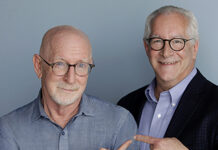
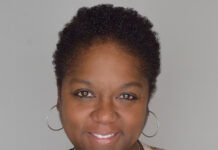
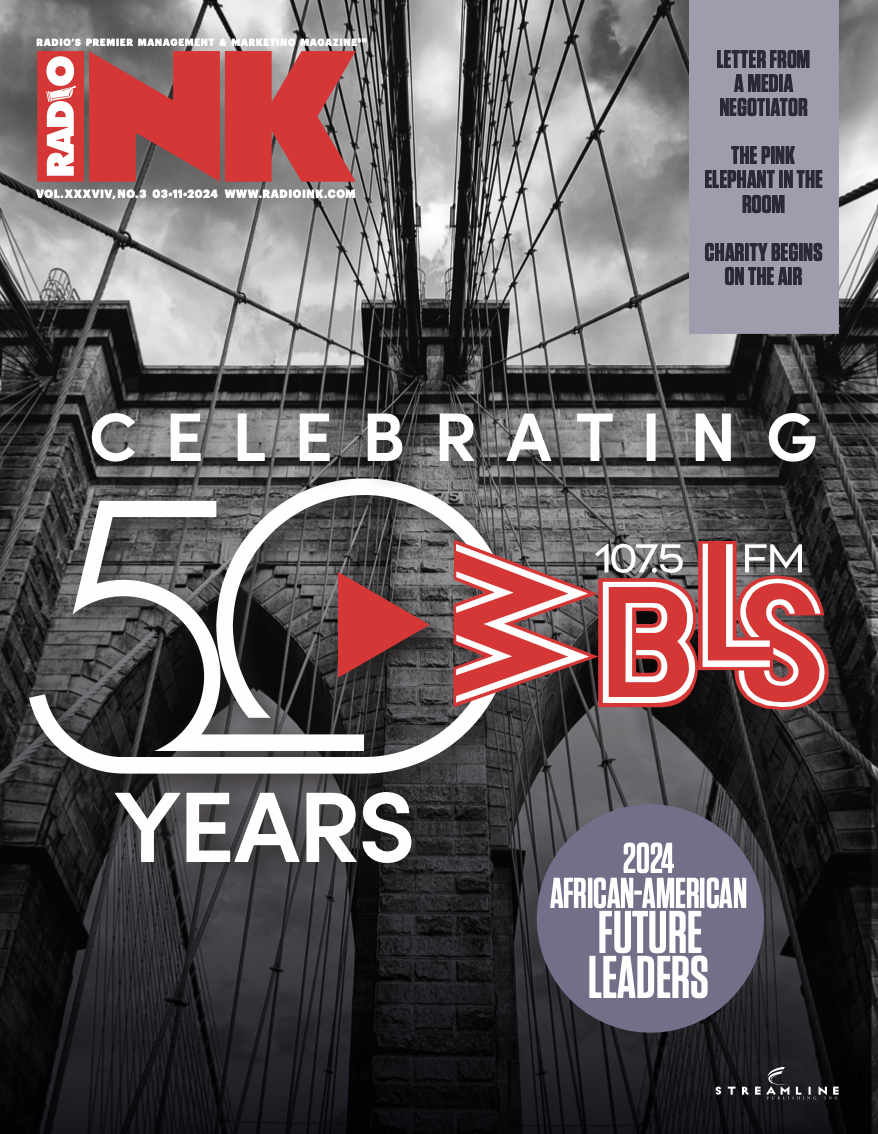

To have an article on attracting talent and limiting it to women is wrong. Radio needs talent period not just women
After considering the issue a little longer, I can come to no other conclusion:
While on the surface, the article accentuates the efforts and some good fortune of a few individuals enjoying their times in the business, the overall strategy is still: to ignore the experiences of the majority of radio’s employees and – to sugarcoat or outright LIE to those who might consider engaging in the medium.
Of course, with so much of those practices being ubiquitous elsewhere in the culture, it seems almost normal – maybe even forgivable.
Who or what is being served is another matter altogether.
There are a number of dangerous presumptions offered within the business, some of which include that radio’s managers have the knowledge and the chops to train newbies well enough that they can have a significant impact.
Radio, practically but still pervasively, is bereft of the necessary knowledge and skills to pass along to new hires.
Those that do well are, for the most part, depending on their own self-applied motivation. Occasionally, some will be blessed with an extraordinary mentor.
Good for some, but not enough to bring the industry up to snuff.
Got kind of tired packing and unpacking
Town to town and up and down the dial
Maybe you and me were never meant to be
But baby think of me once in awhile
I’m at WKRP in Cincinnati
New talent, especially on-air want to bes, in most markets, is always readily available. But, station management has to be receptive. Lots of folks graduate or move on from communications programs (both good and bad) every year, so there should not be a problem. But, one of two areas are risky. The first being good engineering talent. As has been indicated in recent past the chief engineers (Operators) who know the technical side are aging out, and in lots of markets the salaries are not responsive and the consolidation of stations in clusters has not made it any better to provide a growth path. So, we need to find ways to encourage our technical talent and realize they have to be compensated for the 24/7 nature of the business. In addition, I have always been troubled by how we get good, long term sales account folks. To make a financial success of the station – the ability to sell the station on a consistent basis has to be grown and young, energetic social media aware folks are a logical source of talent. They need leadership and good direction.
I’m excited to see an article on this topic, I think our industry is really struggling to attract the next generation of talent, especially in sales, and few in radio management seem to have any idea how to make progress here. I think Leslie said it best, “These young adults understand how to get attention in our short-attention-span world, which is exactly what radio needs to harness.” Personally, I love working in radio sales because I get to bring my enthusiasm to clients and help THEM grab the attention that my generation has really been trained to do our entire lives…I mean haven’t we? From growing up with the internet and social media revolution, to the often complained about “everyone gets a trophy” childhood…we sure do know how to steal the spotlight! I hope to see insight from others on this topic!
To Ronald’s comment, I don’t think removing “sales” from job postings is manipulative. I think our industry needs to speak the language of the prospects we’re going after. That term is a turnoff for my generation. A roadblock where applicants won’t bother to look any further. I think we need to better communicate all that sales folks do beyond “selling” (i.e. bringing ideas to clients, writing copy, etc).
Gosh – so much sincerity. Granted, the women’s remarks were those who actually found a place for themselves within the industry.
The predominant reality, however, is one in which mules are either rented or coerced into the business, and then beaten soundly.
And yes, by all means, eliminate the word “sales” from any job posting as one wouldn’t want to leave the wrong impression.
Hide the mirrors and crank up the smoke machines.